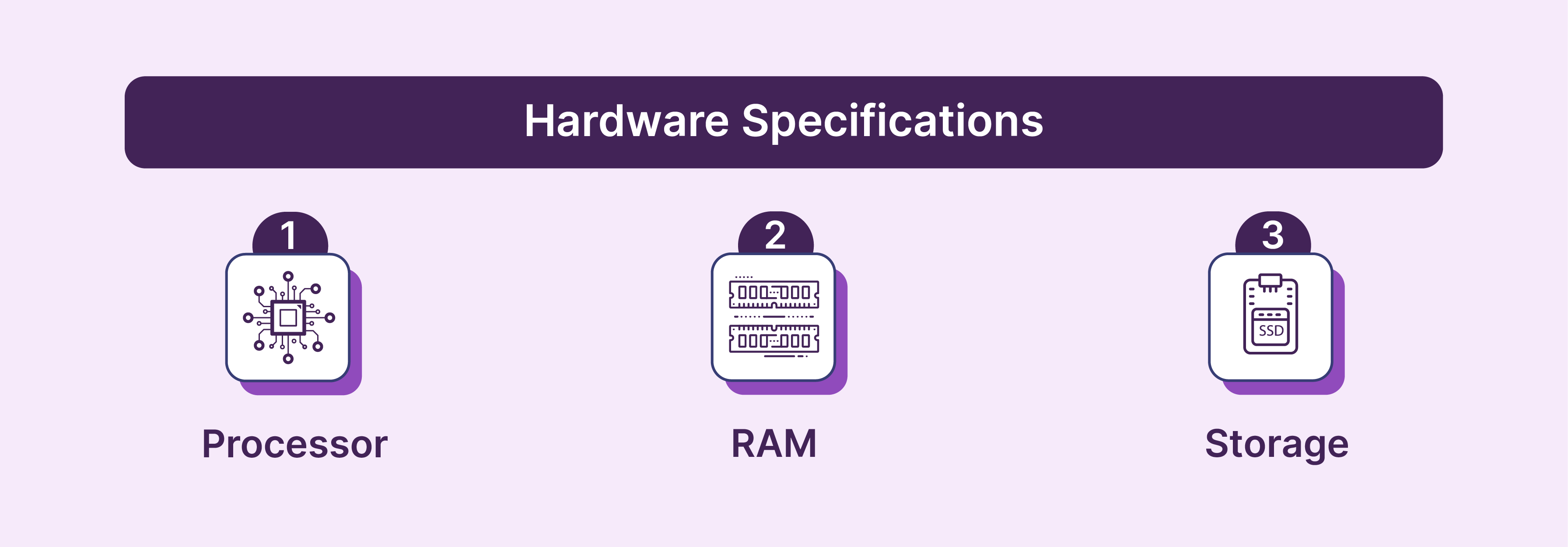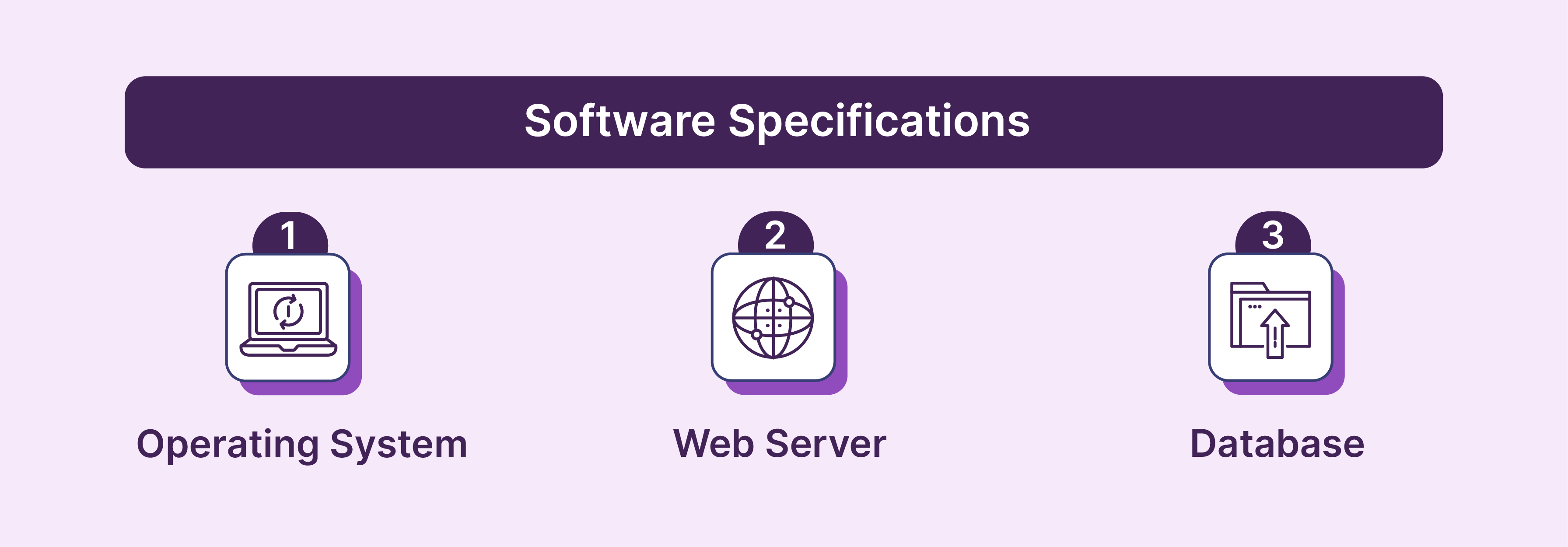
Choosing the Best Magento 2 Hosting Server
Looking for the Best Magento 2 hosting server? This article will help you find that. You will also learn how server optimizations impact site performance and Magento UX.
Key Takeaways
-
Prioritize server optimizations like caching and database strategies for Magento 2 hosting.
-
Ensure hardware specs meet Magento 2 requirements, such as multi-core processors and sufficient RAM.
-
Opt for hosting services offering robust Magento security measures, including SSL certifications and regular updates.
-
Consider hosts that provide scalability and high uptime to handle peak traffic loads smoothly.
-
Select hosting providers with strong support, such as 24/7 monitoring and free migration services.
What to Look for in a Magento 2 Hosting Server
When choosing the best hosting server for your Magento 2 store, here are some key factors to keep in mind:
1. Hardware Specifications

Regarding hardware, there are a few key factors for your Magento 2 hosting server. These include:
-
Processor: Make sure the processor has multiple cores and supports threading. This will allow for better performance when processing multiple requests.
-
RAM: The server should have enough RAM to handle the demands of a Magento 2 store. We recommend a minimum of 4GB, but 8GB or more may be necessary for larger stores.
-
Storage: SSDs are recommended for faster data access and overall better performance.
2. Software Specifications

In addition to hardware, you also need to consider the software specs of the hosting server. Here are some key aspects to look for:
-
Operating System: Linux is the preferred OS for Magento 2, specifically CentOS or Ubuntu.
-
Web Server: Apache and Nginx are compatible with Magento 2, but Nginx is recommended for better performance.
-
Database: MySQL or MariaDB are both compatible with Magento 2. Make sure the server has a recent version of either.
Server Optimization Techniques
1. Caching Mechanisms

Caching is essential for enhancing the performance of a Magento 2 store. Storing content in a cache can be served to visitors much faster. Here are some key caching mechanisms to consider:
-
Full Page Cache (FPC): Magento 2 comes with built-in FPC, which helps reduce server load and improve response time by storing the full output of a page.
-
Varnish: An advanced caching system that works with Magento 2 to serve full pages from memory. It's highly efficient for high-traffic sites.
-
Redis: This can be used for backend and session storage. Redis is an in-memory data structure store used as a database, Magento cache, and message broker that improves Magento 2's performance by reducing database load.
2. Database Optimization Strategies

Optimizing your database is key to maintaining a smooth and responsive eCommerce store. Consider these strategies:
-
Indexing: Ensures that your database can retrieve data faster. Magento 2 indexes data such as products, categories, and prices.
-
Regular Maintenance: Clearing out log files and other temporary data should be your cleanup routine.
-
Query Optimization: Ensure that database queries are well-structured and indexed to minimize load times.
3. Content Delivery Network (CDN) Integration

A Magento CDN can drastically improve site speed by caching content in multiple geographic locations closer to visitors:
-
Geographical Reach: Choose a CDN provider with a wide range of global Points of Presence (PoPs).
-
HTTP/2 Support: Ensures faster content delivery due to improved optimization over HTTP/1.
-
SSL Support: Securely serve your content over HTTPS with a CDN that provides SSL termination.
4. Performance Tuning for Peak Loads

Ensuring your eCommerce store withstands peak traffic periods is critical to prevent downtime and loss of revenue. Implementing the right strategies can help you manage sudden surges and maintain a smooth shopping experience:
Load Balancing:
Including this technique helps to distribute incoming traffic across multiple servers, preventing any single server from becoming overwhelmed. This is essential for maintaining the site’s availability and responsiveness during sales or marketing events that drive high traffic.
-
Use a robust load balancer to handle SSL offloading and automatic failover.
-
Configure load-balancing algorithms that best match your traffic patterns, such as round-robin or least connections.
Efficient Resource Management:
Optimizing the use of server resources ensures your infrastructure can handle high-load scenarios.
-
Scale resources dynamically with cloud-based solutions or use auto-scaling if hosting on platforms like AWS.
-
Monitor resource usage and establish CPU, memory, and disk I/O thresholds to predict scaling needs.
Setting Up Proper Indexes and Query Optimizations:
Optimizing your database is paramount, particularly under heavy load. Proper indexing and query optimizations can drastically reduce the stress on your database.
-
Analyze and optimize database indexes to cover the most frequent and heavy queries.
-
Regularly perform query optimization by profiling database requests and fine-tuning them for better performance.
5. Security Measures

High traffic periods can attract malicious attacks. Implementing proper security measures to protect your website and customer data is essential.
SSL Certifications and Secure Payment Gateways
Data transaction security maintains customer trust and complies with legal standards.
-
Implement SSL (Secure Sockets Layer) certifications: This establishes a secure and encrypted link between the server and the customer’s browser. It safeguards sensitive information during transit.
-
Partner with reputable payment gateways: Ensure they comply with the Payment Card Industry Data Security Standard (PCI DSS). This protects against data breaches and fraud during payment processing.
Regular Updates and Patches
Keeping software up-to-date is critical for the security and efficiency of any website.
-
Regularly update all system software, third-party libraries, and Magento plugins to the latest versions to patch vulnerabilities and improve performance.
-
Implement automated update systems where possible, and keep a changelog to track and verify updates for auditing purposes.
Data Backups and Disaster Recovery Plans
A robust Magento backup and disaster recovery strategy ensures minimal data loss and service interruption in case of unforeseen events.
-
Schedule regular data backups, both on-site and off-site, to facilitate quick recovery from data loss incidents.
-
Develop a Magento disaster recovery plan. Outline procedures for restoring services and data in case of outages, cyber-attacks, or natural disasters. Ensure business continuity.
How Best Magento Hosting Providers Configure Servers
1. MGT-Commerce
-
Cloud Infrastructure: Utilizes AWS for scalable cloud infrastructure, enabling dynamic adjustment to traffic demands.
-
Dedicated Server: For businesses with high traffic volume or sensitive information, dedicated servers are available for personalized hosting needs.
-
Shared Server: With shared server capabilities, our customers can deploy websites and web apps quickly.
-
Caching Technologies: Implements Varnish Cache for fast content delivery and Redis for session storage and database caching, reducing load times significantly.
-
Database Optimization: Uses Percona for database management, offering better performance and reliability than standard MySQL.
-
Search and Queue Management: Integrates Elasticsearch for rapid search capabilities and RabbitMQ for efficient message queuing, enhancing overall site responsiveness.
2. Cloudways
-
Multi-Cloud Flexibility: Offers a choice among five cloud providers, including AWS and Google Cloud, for hosting Magento, allowing businesses to select the most suitable infrastructure.
-
Advanced Caching: Leverages built-in advanced Magento caching mechanisms like Varnish, Redis, and Cloudways’ own Breeze plugin to enhance Magento’s speed.
-
Performance Stack: Uses a custom stack including Nginx and Apache as web servers, PHP-FPM for PHP processing, and MySQL/MariaDB for databases, optimized for Magento.
-
1-Click Scaling: Provides easy vertical scaling with a single click through their platform, enabling instant resource adjustment without downtime.
3. Nexcess
-
Magento Optimized Environment: Tailors its server environment specifically for Magento, with features like auto-scaling and instant asset purging.
-
Performance Monitoring: Uses proprietary monitoring tools to proactively manage server health and load, ensuring high uptime and responsiveness.
-
Security First: Implements PCI-compliant solutions, advanced DDoS protection, and custom firewall rules to safeguard Magento installations.
-
Built-in Caching Solutions: Integrates Nexcess’ Full Page Cache and supports Varnish, enhancing site speed and user experience.
4. A2 Hosting
-
Turbo Servers: Offers Turbo Server options promising up to 20x faster page loads by using fewer users per server and a more efficient server configuration.
-
Pre-Configured Software: Magento comes pre-installed with optimized settings on A2 Hosting servers, including PHP 7.x and secured inputs.
-
Global Data Centers: Allows choice of server location, reducing latency by hosting your site closer to your visitors.
-
Server Rewind Backups: Provides free automatic backups and an easy-to-use server rewind tool, ensuring data safety.
5. HostArmada
-
Cloud SSD Technology: Utilizes cloud-based SSD storage for all hosting plans, improving performance and load times for Magento stores.
-
Web Server Choice: Offers a choice between Nginx and Apache, allowing for customization based on specific Magento store needs.
-
Dynamic Caching: Implements LiteSpeed Cache, along with Varnish and Redis options, for dynamic content caching tailored to Magento’s structure.
-
Security Measures: Provides free SSL, daily backups, web application firewall, and live patching to ensure Magento stores remain secure and compliant.
6. Hostinger
-
LiteSpeed Web Servers: Utilizes LiteSpeed web servers for all Magento hosting plans, significantly enhancing performance and scalability.
-
Custom Caching: Employs LiteSpeed Cache for Magento, providing a powerful caching solution that dramatically reduces page load times.
-
PHP Optimizations: Supports the latest PHP versions with optimizations for Magento to ensure high performance and security.
-
Global Data Centers: Offers hosting in multiple data centers around the world, allowing businesses to host their site closer to their customers for faster load times.
7. iPage
-
Shared Hosting Environment: Optimizes its shared hosting environment for Magento by providing enough resources and performance at an affordable price.
-
Enhanced Security: Implements a suite of security features including malware scans and a custom firewall to protect Magento sites.
-
Simple Scalability: Provides easy options for scaling hosting resources to accommodate growth in Magento store traffic and complexity.
-
Varnish Caching: Offers Varnish caching options to help speed up the delivery of content on Magento stores.
8. HostGator
-
Flexible Hosting Options: Provides a range of hosting options from shared to dedicated servers, each optimized for Magento’s requirements.
-
Performance Tuning: Adjusts server settings and resources specifically for Magento to ensure optimal performance and loading times.
-
Backup Solutions: Includes automatic backups and easy restoration options to safeguard Magento stores against data loss.
-
Advanced Caching: Supports integrated caching solutions to improve page speed and reduce server load for Magento sites.
9. Bluehost
-
E-commerce Optimization: Specifically optimizes hosting environments for e-commerce platforms like Magento, with security and performance in focus.
-
Content Delivery Network (CDN): Offers integrated CDN services to speed up load times for Magento stores globally.
-
SSL Certificates: Provides free SSL certificates for all Magento hosting plans to ensure secure transactions and customer trust.
-
Automatic Updates: Manages automatic updates for the hosting environment, ensuring that Magento stores are always running on supported and secure software.
10. FastComet
-
Fully Managed Magento Hosting: Offers fully managed Magento hosting on SSD-only cloud that ensures fast performance and resilience.
-
Built-in Caching Mechanisms: Implements caching technologies like Varnish, and includes options for Redis and Memcached to speed up Magento stores.
-
Free Cloudflare CDN: Integrates Cloudflare CDN for free, improving website load speed and security for global audiences.
-
Magento-specific Security: Provides Magento-specific security enhancements including web application firewalls, brute force protection, and daily scans.
11. SiteGround
-
SuperCacher Technology: Features its custom caching solution, SuperCacher, designed specifically for speeding up Magento page loading times.
-
High-Performance PHP: Utilizes the latest PHP versions with Opcache to speed up Magento performance significantly.
-
Staging Tool: Offers a staging environment for testing new features or updates without affecting the live Magento site.
-
Daily Backups and Free SSL: Ensures Magento site security with daily backups, free SSL certificates, and proactive server monitoring.
FAQs
1. Can I install an e-commerce platform like Magento or WordPress with my hosting provider?
Yes, you can install e-commerce platforms such as Magento and WordPress. Many hosting providers, including MGT-Commerce, InMotion and SiteGround, offer one-click installations to ease the process for business owners.
2. What should I consider when considering the price of VPS hosting plans?
When reviewing VPS hosting plan prices, consider the types of resources you're getting, like SSD storage and RAM, the size of your business, and whether the hosting solution scales with your needs. Companies like Vultr and Linode offer competitive packages.
3. How do I decide which hosting service is best for developers?
Developers should look for hosting services that offer robust support, advanced technologies such as Magento NGINX and HTTP/2, and flexibility with IP address assignments. Companies like Linode and Google Cloud are often recommended for developers' needs.
4. What makes SiteGround a recommended hosting provider for WordPress sites?
SiteGround is often recommended for WordPress due to its optimized hosting environment, which includes SSD storage for speeds and power, a knowledgeable support team, and tools tailored to WordPress applications.
5. Is there a hosting company that provides excellent support for transferring my business site?
Many hosts, such as MGT-Commerce and FastComet, provide excellent support teams to help with site migration. GoDaddy is also known for hands-on assistance with everything from domain transfer to getting online with your new hosting company.
Summary
A best Magento 2 hosting server combines performance, support, and scalability. They offer resources and expert help to keep online stores running smoothly. Opting for managed Magento hosting can boost your business's performance and growth.



